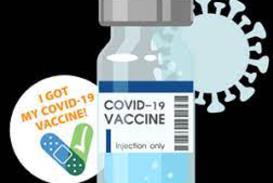Healthcare Medical Pharmaceutical Directory.com
Health Insurance - MCOs
Business Trends...
- MCOs and healthcare insurers require flexible risk management forecasts and strategies as the pandemic unfolds in 2021
- Health plans continue to seek ways to develop or acquire their own medical care provider services to control costs, add income and leverage against healthcare provider organizations like health systems and large medical groups
- Scroll down to learn more about growth and challenges for managed care organizations and health insurance companies
BCBS Affiliations:
*Plans operated by CareFirst
**Plans operated by Highmark
***Plans operated by Health Care Service Corp.
****Plans operated by Premera
*****Plans operated by Regence Group
******Plans operate by Wellmark
*******Plans operated by Anthem
... A list of Blue Cross Blue Shield plans...
A Global Pandemic Puts The Pressure On Even The Best Risk Management Leaders
Commercial and government payers have their hands full as 2021 unfolds with the unrelenting issues of COVID-19 still underway. Leading up to 2020, the payer sector had seen significant competitive changes. The CVS Health acquisition of health insurer Aetna became a landmark deal when it was finally approved in 2019:
Prior to the CVS deal, UnitedHealth Group (UHC) made a bold move in acquiring the surgery center chain Surgical Care Affiliates (SCA) for $2.3 billion in 2017. SCA operates over 200 surgical facilities with more than 7,500 physicians. The facilities conduct over 1 million procedures annually. This is part of UHC's ongoing initiatives to change its business model beyond being a healthcare plan to encompass being a healthcare provider organization; its Optum business unit plays a pivotal role. Recent acquisitions by UnitedHealth Group and its Optum business unit include:
- Diplomat Pharmacy ($300 million)
- Surgical Care Associates ($2.3 billion)
- DaVita Medical Group ($4.3 billion)
- Reliant Medical Group ($28 million)
- Equian, a healthcare billing firm ($2.3 billion)
- Plus a hearing aid health insurance company and a sizable investment into a physician staffing firm
By acquiring medical care entities, UHC has more direct influence on providers, care protocols and costs associated with them. Through adding SCA to the combination of other medical practices they own, it provides different streams of revenue for UHC. It also improves their position to negotiate rates with other health systems and care providers. While United Healthcare has a long way to go to reach the scale Kaiser Permanente has in terms of being a healthcare provider, its investments in the sector convey they have a long term plan to strategically expand their presence and generate revenue from it.
Humana's acquisition of Kindred Health for $4.1 billion in 2018 has been overlooked by many in the healthcare industry. While it is a lesser scale deal than the CVS/Aetna and Cigna/Express Scripts acquisitions, it is still impressive as it put them into the healthcare provider sector. Humana also needed a way to fortify their position and diversify following Aetna's failed acquisition of their company due to regulatory antitrust concerns. The combination of Humana/Kindred sets the stage for them to regroup and grow organically and perhaps acquire or be acquired by another commercial healthcare enterprise.
Merger and Acquisition Meltdowns: Anthem / Cigna and Aetna / Humana
Similar to the consolidation of hospitals and health systems across the United States, health insurance companies and managed care organizations are merging and acquiring each other. This has not escaped the attention of regulators. The FTC and other government agencies at the Federal and State level are carefully assessing proposed deals.
Following the failure of a merger deal with Anthem, Cigna moved forward and acquired PBM Express Scripts for $54 billion and combined it with their existing PBM "Tel-Drug". Humana has made a string of acquisitions including partnering with private equity firms to acquire the home care portion of Kindred Healthcare and all of Curo Health Services (hospice care provider); then on its own acquired Enclara (a hospice PBM) and Family Physicians Group (a large medical practice group in Florida).
Based on the shortcomings of the Anthem/Cigna and Aetna/Humana acquisition deals, in the future any such considerations between health insurance companies and managed care organizations will go through more exhaustive internal vetting prior to even introductory conversations between organizational leaders. While an emphasis on finances is important, the regulatory antitrust obstacles are complex and the process of navigating through them is costly not to mention the consequences of breakup fees which may be in place in the event of deal failures.
BlueCross BlueShield (BCBS)
BCBS, founded in 1929, is a national healthcare benefits leader that continues to be a formidable competitor for any health insurance carrier or MCO. BCBS licensees market plans in all 50 states plus Puerto Rico and the District of Columbia through 36 licensees. While there are more than 20 single-state BCBS plan entities, there are a few BCBS organizations that operate clusters of BCBS plans in more than one state including:
- Anthem, headquartered in Indianapolis, Indiana, recently re-branded and re-launched a "new" PBM, InegnioRx; it operates BCBS plans in California, Colorado, Connecticut, Georgia, Indiana, Kentucky, Maine, Missouri, Nevada, New Hampshire, Ohio, Virginia, Washington, Wisconsin which produce over $90 billion in yearly revenue.
- Cambia Health Solutions, based in Portland, Oregon, generates over $9 billion in annual revenue and markets BCBS plans in Idaho, Oregon, Utah and Washington
- Chicago-based Health Care Services Corporation (also known as HCSC) is a partner in a cooperatively-owned BCBS PBM, Prime Therapeutics, and markets plans in Illinois, Montana, New Mexico, Oklahoma and Texas; they generate over $30 billion in yearly revenue.
- Highmark, headquartered in Pittsburgh, Pennsylvania, produces almost $19 billion in annual revenue and manages plans in Delaware, Pennsylvania, West Virginia
- Sioux Falls, South Dakota-based Wellmark operates BCBS plans in Iowa and North Dakota; its annual revenue is about $2.7 billion.
Kaiser Permanente
Based in Oakland, California, Kaiser Permanente is a combination of for-profit and non-for-profit business units. Kaiser has plans in eight states (Hawaii, Washington, Oregon, California, Colorado, Maryland, Virginia, Georgia) plus the District of Columbia. Founded in 1945, Kaiser's unique business model, which UnitedHealth Group and other managed care plans seem to be duplicating, features conventional medical insurance plus it owns hospitals, medical centers, clinics and mail order pharmacies. Its annual revenue is about $80 billion.
Evolution of Obamacare
The ongoing exodus of health plans from Obamacare state exchanges is creating issues. The exchanges are costly to operate and as plans left there was less funding from them to support their ongoing operation. Since less plans have chosen to remain in the exchanges, consumers have less access to care and less options to choose from. From the start, insurers and managed care plans were hesitant to move forward in the state exchanges based on high numbers of high risk members which are not offset by enough low risk members. This created funding issues for the exchanges as time progressed.
Presently, in many cases in which there is only one health insurer remaining, it is a Blue Cross Blue Shield (BCBS) affiliated program. Smaller sponsors are sometimes featured but quite often their plans are not as robust as a BCBS plan or cost considerably more and in some cases, such as Wellmark, even the BCBS plan in the state has exited the ACA market sector. This goes against the Obamacare exchange concept of providing competitive, low cost health insurance to a wider array of consumers that did not have insurance provided to them by an employer or other plan sponsor.
Moving Forward
The variety of new business models in health insurance and managed care organization was unimaginable ten years ago as are the consequences of a global pandemic today. For 2021 and beyond, consumers, patients, employers and provider organizations like hospitals, health systems and medical practice groups are contending with the benefits and challenges of these companies providing more services yet having much more longitudinal control of their healthcare and pharmacy costs and care options. For medical professionals and their provider organizations, their income and service reimbursement leverage is greatly tested and the consolidation of hospitals and health systems has largely been driven forth as a strategy to strengthen their position.
Healthcare Product Manufacturer Strategy, Provider Needs, Commercial Goals, Payer Influences
A combination of patient care demands, commercial goals and research & development focus has formed into a new strategy for healthcare product manufacturers when it comes to payers and profitability. From the beginning of product development, market potential, care and cost attributes are more heavily weighed along the way to better align with what will optimize product position with payers.
Breakthrough products offer great value but their developers face headwinds not only from the larger payer/provider stakeholders involved but from government interests and consumer watchdog groups as well. New product opportunities for pharmaceutical companies involving orphan drugs and rare diseases have high cost and development risks but if they are approved there is less competition so they typically have higher margins.
For medical, pharmaceutical and other healthcare product manufacturers and service providers, market access strategy has to be meticulously planned as so much of the total healthcare and pharmacy benefits marketplace is now centered on a much more condensed number of medical and pharmacy benefit plan companies. Patient outcomes data based on care and cost performance must be rigorously accounted for in new brand therapies while generics must vie for access on aggressive price discounting tactics; likewise medical devices, implants and other items must be able to demonstrate clear care and cost performance advantages. This has resulted in companies reformulating their business models and core competencies.
Strategies include:
- Greatly reducing R&D portfolios to center on a limited number of diseases, patient types, market sectors
- Investing in product development companies with seed funding and providing additional monies as certain goals are reached in the development of new products
- Acquiring specific products as they reach successful endpoints in their development that meet clinical and financial criteria and are at the threshold of final approval processes with regulatory agencies
- Buying products / companies that meet clinical and financial criteria but are under-capitalized and not able to fully commercialize and competitively launch products by themselves
For each of the options above, expenses plus near and long-term profitability are weighed to evaluate their impact on investors, organizational performance and business positions with payers. Market access strategy is a pivotal element of success or failure that healthcare providers must contend with.
... A profile of the Healthcare Insurance and Managed Care Organizations (MCO) market sector with further insights from articles and presentations; scroll down for a list of the largest health insurers, MCOs and Blue Cross Blue Shield plans ...
... The Health Insurance industry continues to evolve. Plan designs, digital marketing, ACA and other factors are changing the way health insurance is marketed. Relationships with pharmaceutical manufacturers and the ongoing exploration of data to develop better treatment outcomes continues ...
... Learn more about UHC's changing business model to take advantage of marketplace developments and growth opportunities; read the articles below ...
... Eclipsed by COVID-19, the EVALI e-cigarette and vaping healthcare crisis presents a care and cost risk management issue for MCOs and health insurers ...
... A list of the largest Health Insurance companies and Managed Care Organizations...
(WellCare is now part of Centene)
...A healthcare industry business intelligence resource with marketing strategy insights for pharmaceutical and medical device manufacturers, healthcare provider organizations, medical software and technology enterprises, patient care service companies and management consulting firms spanning a global community of users from 50+ nations...


